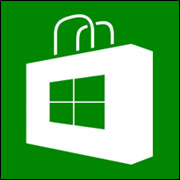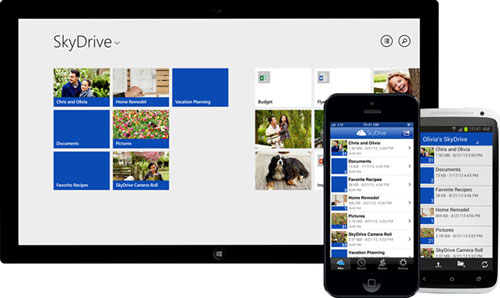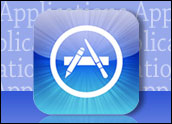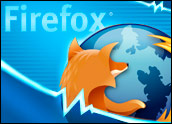
Cloud storage is a fast-moving arena, with advancements including the ability to store files and folders in the cloud along with metadata on your PC replicating the actual file. The file isn’t there and isn’t taking up space, but you can see relevant attributes.
Other cloud techniques include the ability to sync files only as you need them.
In this week’s All Things Appy, we take a look at the top five, free, must-have Windows desktop apps in the cloud storage category.
Note: Google’s Drive, a solid PC performer with 15 GB of free space, doesn’t provide a Windows 8 app, so it’s excluded from this list.
About the Platform: Windows apps can be found in the Windows 8 Store. Click or touch the Start page Store tile and search by placing your mouse pointer or finger in the bottom-right corner of the screen. Then choose the Search charm’s icon.
No. 1: SkyDrive

The SkyDrive app has an average rating of 3.7 stars out of a possible 5 with 795 ratings in the Windows 8 Store.
![]()
Bing Smart Search and native Microsoft Windows integration are the killer features in this Microsoft cloud storage add-on app offering. A basic version is included in the operating system natively, and this add-on is available in the Store.
Bing Smart Search is a new feature in the free Windows 8.1 update that lets you see and search for both local and cloud files at the same time by just starting to type on the Start page. No browser or Windows Explorer window is required.
No. 2: All My Storage

All My Storage has an average rating of 3 stars out of a possible 5 with 155 ratings in the Windows 8 Store.
![]()
Here’s an aggregator app that lets you merge your cloud and local files. It handles multiple SkyDrive accounts plus Box and the classic Dropbox, and it allows you to move files around among the disparate cloud systems.
A paid version integrates other cloud services like SugarSync and Google Drive.
No. 3: Box

Box has an average rating of 3.6 stars out of a possible 5 with 1,228 ratings in the Windows 8 Store.
![]()
Ten gigs of storage and a Windows 8 app beats Microsoft’s SkyDrive with its 7 GB and places Box in the lead when it comes to free cloud space along with app. Promotions available with certain hardware purchases can increase free storage limits further.
Box file management is slightly less sophisticated than SkyDrive, which is why it’s in one of our runners’ up positions — it doesn’t use the equivalent metadata-style indexing.
No. 4: Dropbox
Dropbox has an average rating of 2.9 stars out of a possible 5 with 2,738 ratings in the Windows 8 Store.
![]()
Dropbox is the granddaddy of cloud file storage, and although it offers just a puny 2 GB of initial free storage, it is a widely used cloud product for sharing files.
Awkward, slow file scrolling in this app adds to a dull experience.
It’s a runner-up, but there’s a good chance you’ll use it someday to share print-ready files or large media with colleagues or buddies, so get used to it.
No. 5: File Brick
File Brick has an average rating of 3.9 stars out of a possible 5 with 174 ratings in the Windows 8 Store.
![]()
We’ve written about File Brick before and love its gorgeous, elegant simplicity and logical file classifications. If you’re used to creaky file management with Windows Explorer windows, do your eyes a favor and demo File Brick.
Then delete it, because unfortunately we’re beginning to see some unpleasant blackmail-like feature unlocks — where you can share a File Brick app comment to your Facebook wall to unlock certain cloud services.
What’s wrong with add-support? A bottom position in our top five because of that.
Want to Suggest an Apps Collection?
Is there a batch of apps you’d like to suggest for review? Remember, they must all be for the same platform, and they must all be geared toward the same general purpose. Please send the names of five or more apps to me, and I’ll consider them for a future All Things Appy column.
Don’t forget to use the Talkback feature below to add your comments.






















































I personally like the way File Brick offers their feature unlocks, if I like the software enough to want to expand my use of it I don’t mind posting a comment on a social network. The one thing I consider a bad side effect of the Windows RT OS and Windows 8 Metro applications is all of the advertising. Obviously, I know software devs need to implement advertising and I can tolerate and accept ads in any free software I install. What I absolutely dislike is the advertising in MS system apps that come preinstalled, I paid for the hardware and an OS and I feel I should never see ads within the core software. Just my $.02 – Thanks
Great article, covers the basics well. My only comment would be the omission of copy.com. We have deployed ‘copy’ across our network extensively. It is a genuine competitor to Dropbox. Same simple to use interface, same range of free apps for all devices but – instead of 2GB of free space copy.com gives 15GB of free space with better bonuses and sharing options.